Join a community of readers who are committed to Jewish stories
Sign up for JBC’s Nu Reads, a curated selection of Jewish books delivered straight to your door!
November 13th of this year will mark the 100th celebration of Jewish Book Month! Held the month before Hanukkah, this annual tradition traces its roots to the work of intrepid Boston librarian Fanny Goldstein. (Dig into the history of Jewish Book Month here and find out how you can join the celebration here.)
In recognition of this milestone, the JBC editorial team put their heads together to create a reading list of exceptional works of fiction over the past century, one (okay, two!) novels for every decade. What works of fiction would be on your best of the decade list? Write us a note to info@jewishbooks.org and we’ll be sharing these later in the month!
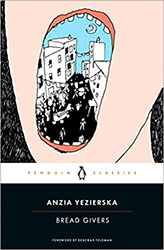
Bread Givers by Anzia Yezierska
“Bead Givers follows the story of Sara Smolinsky, a Jewish immigrant in the early 1900s who is determined to escape the fate of her three older sisters: a life dictated by the wills of men.” ~Adina Applebaum
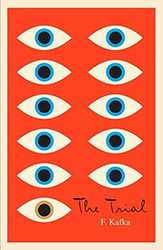
The Trial by Kafka
“Written in 1914, The Trial is the terrifying tale of Josef K., a respectable bank officer who is suddenly and inexplicably arrested and must defend himself against a charge about which he can get no information.” ‑From the publisher
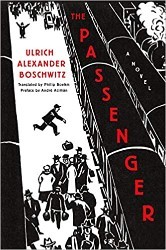
The Passenger by Ulrich Alexander Boschwitz, translated by Philip Boehm
“Written in the weeks following Kristallnacht, when Boschwitz was just twenty-three, The Passenger offers an intimate portrait of Jewish life in prewar Nazi Germany at the onset of dehumanization, before the yellow star was imposed. What remains unsettling is how Boschwitz renders the mentality of Germany’s deeply assimilated Jews, who felt more German than Jewish, but ultimately understood the Nazis’ plans and sought to escape a horrific fate.” ‑Donald Weber
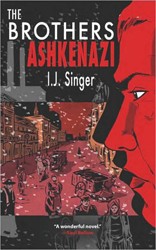
The Brothers Ashkenazi by I.J. Singer
“The Brothers Ashkanazi was the first book that I.J. Singer published after arriving in New York from Warsaw in 1934. Its ambition and range were unprecedented in Yiddish literature … and it called forth comparisons to Tolstoy.” ‑Rebecca Newberger Goldstein
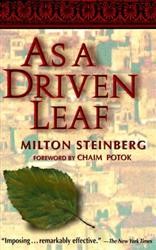
As a Driven Leaf by Milton Steinberg
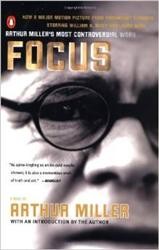
Focus by Arthur Miller
“Written in 1945, Focus was Arthur Miller’s first novel and one of the first books to directly confront American antisemitism.” ‑From the publisher
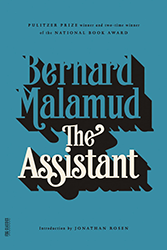
The Assistant by Bernard Malamud
“Like Malamud’s best stories, this novel unerringly evokes an immigrant world of cramped circumstances and great expectations. Malamud defined the immigrant experience in a way that has proven vital for several generations of writers.” ‑From the publisher
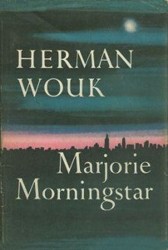
Marjorie Morningstar by Herman Wouk
“In this memorable novel, Herman Wouk, winner of the Pulitzer Prize, has created a story as universal, as sensitive, and as unmistakably authentic as any ever told.” ‑From the publisher
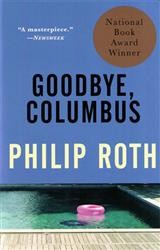
Goodbye, Columbus and Five Short Stories by Philip Roth
“Goodbye, Columbus is the story of Neil Klugman and pretty, spirited Brenda Patimkin, he of poor Newark, she of suburban Short Hills, who meet one summer break and dive into an affair that is as much about social class and suspicion as it is about love.” ‑From the publisher
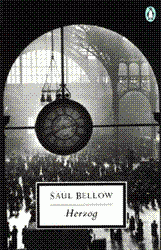
Herzog by Saul Bellow
“In one of his finest achievements, Nobel Prize winner Saul Bellow presents a multifaceted portrait of a modern-day hero, a man struggling with the complexity of existence and longing for redemption.” ‑From the publisher
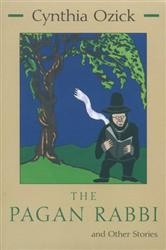
The Pagan Rabbi and Other Stories by Cynthia Ozick
“Ozick is a kind of narrative hypnotist. Her range is extraordinary; there is seemingly nothing she can’t do. Her stories contain passages of intense lyricism and brilliant, hilarious, uncontainable inventiveness.” ‑From the publisher
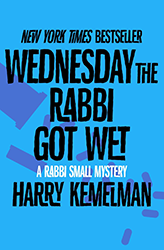
Wednesday the Rabbi Got Wet by Harry Kemelman
“When the dead man’s family suggests the mix-up was intentional, both the druggist and his son become suspects and it’s up to Rabbi Small to investigate by drawing on some Old Testament wisdom in a village of New Age fads.” ‑From the publisher
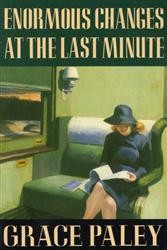
Enormous Changes at the Last Minute: Stories by Grace Paley
“In this collection of seventeen stories, she creates a‘solid and vital fictional world, cross-referenced and dense with life’ (Walter Clemons, Newsweek).” ‑From the publisher
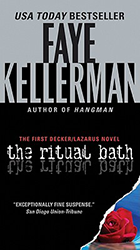
The Ritual Bath by Faye Kellerman
“Detective Peter Decker of the LAPD is stunned when he gets the report. Someone has shattered the sanctuary of a remote yeshiva community in the California hills with an unimaginable crime.” ‑From the publisher
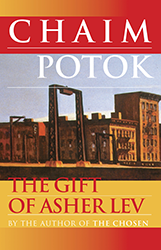
The Gift of Asher Lev by Chaim Potok
“It is a journey of confrontation and discovery as Asher purges his past in search of new inspiration for his art and begins to understand the true meaning of sacrifice and the painful joy in sharing the most precious gift of all.” ‑From the publisher
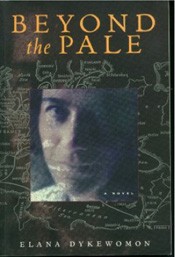
Beyond the Pale by Elana Dykewomon
“Both epic and intimate, the book takes readers deep inside diverse worlds, with harrowing and heroic stories of midwifery, the Russian pogroms, and early lesbian life.” ‑From the publisher
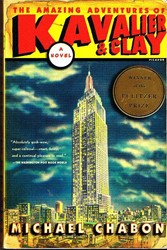
The Amazing Adventures of Kavalier & Clay by Michael Chabon
“Out of their fantasies, fears, and dreams, Joe and Sammy weave the legend of that unforgettable champion the Escapist. And inspired by the beautiful and elusive Rosa Saks, a woman who will be linked to both men by powerful ties of desire, love, and shame, they create the otherworldly mistress of the night, Luna Moth. As the shadow of Hitler falls across Europe and the world, the Golden Age of comic books has begun.” ‑From the publisher
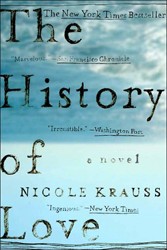
The History of Love by Nicole Krauss
“The author of this deeply moving novel plays with the way accident and coincidence, dreams and delusions, define and comfort those who have loved and lost.” ‑Joan Baum
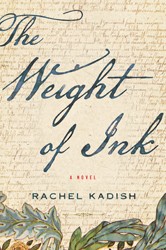
The Weight of Ink by Rachel Kadish
“The beauty of this story is in the variety of its milieus and sensibilities. As we follow our female protagonists of both the seventeenth and twenty-first centuries — Ester Velasquez and Helen Watt, respectively — we also witness the goings-on of a venerable and drafty house of a rabbi in 1660s London, and glimpse the modern life of a cheeky young American man with heartrending troubles of his own.” ‑Kristin Gibbons
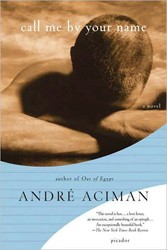
Call Me By Your Name by André Aciman
“The author’s extraordinary use of language evokes long, luxurious sun-drenched days by the sea, first love, deep intimacy, and the foreverness of youth. The whole piece, read start to finish (and it’s hard to put down once begun) flows and ebbs, waxes and wanes like life and love and endless summer days.” ‑Michal Hoschander Malen
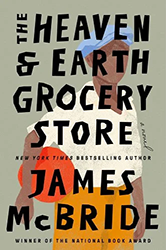
The Heaven & Earth Grocery Store by James McBride
“The Heaven & Earth Grocery Store is an excellent read for those interested in American history, and it is another example of James McBride’s talent as a novelist.” ‑Benjamin Selesnick
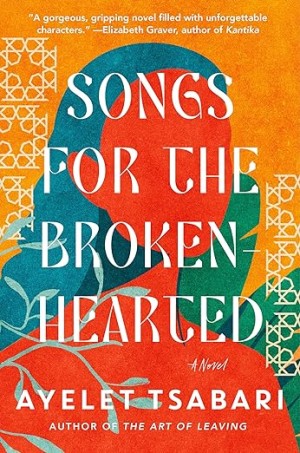
Songs for the Brokenhearted: A Novel by Ayelet Tsabari
“This soaring novel does justice to it all: the feverish highs and lows of love affairs, personal and collective forms of grief, tempestuous family dramas, issues of gender and belonging, and Israel’s divisive politics.” ‑Ranen Omer-Sherman